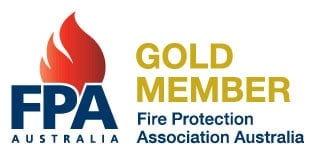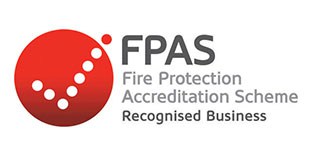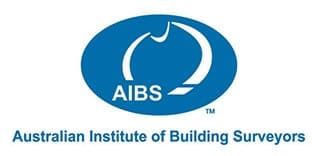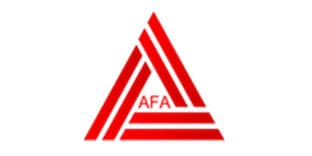Ensure the Effectiveness of Your Smoke and Fire Alarms In NSW
Heat detection and smoke alarms are the best first lines of defence for effective fire protection. They are indispensable when fire safety is concerned and, as such, fire alarms have certain laws regarding their use.

Fire and Smoke Alarm Laws in NSW
The Environmental Planning and Assessment Regulation of 2000 states that all buildings wherein people sleep must have a smoke alarm. Of course, this is the bare minimum requirement regarding alarm installations for fire safety – specific buildings have additional specific recommendations. These include the following:
1. For Homes
For homes, smoke alarms must be on every storey. Take note that the term “home” refers to a house or any residential area where people sleep. Aside from having a smoke alarm on every storey, it’s recommended that the alarms be placed close to bedrooms.
For houses that have separate bedrooms, multiple smoke alarms for each area are ideal and there must be heat detection and smoke alarm units on floors, even if they’re typically unoccupied, including basements and attics.
2. For tenants
As with the regulations for residential areas, a smoke alarm must be present on every storey of the residential complex and is the responsibility of the landlord. Of course, the tenants themselves have responsibilities in keeping the smoke alarms in good working order. These include:
- Reporting any malfunctions.
- Ensuring that the alarms work.
- Battery replacements and maintenance services, which are to be done by Fire protection Management professionals.
- Reporting any modifications and repairs done to the smoke alarms.
3. For Landlords
Landlords and tenants must not tamper with the smoke alarms in residential buildings. The landlord is also responsible for the heat detection and smoke alarms in unoccupied residences and checking on the condition of the alarms before and following tenant occupancy.
4. For Motorhomes and Mobile Residences
Smoke alarms are necessary for any caravans, mobile residences, and motorhomes. The following are some important fire safety requirements for these dwellings:
- Smoke alarms with a temporary mute button (of a maximum of 10 minutes muting time) are required.
- A minimum of one smoke alarm per residence.
- The smoke alarm must be located where the residents sleep.
- A smoke alarm must be installed in annexes where residents sleep.
As mentioned earlier, these requirements are the bare minimum for smoke alarms in New South Wales. So, make sure that these units are placed and used strategically.
If proper use and strategic placement are a problem, contact a fire professional such as Redmen Fire Protection Management for effective and immediate assistance. A fire professional can make the necessary recommendations to make the dwelling a safer place.

Smoke Alarm Standards in NSW
In addition to the requirements above, each installed smoke alarm must be compliant with government standards. For a smoke alarm unit to be compliant with fire safety standards, take note of the following points:
Current Building Code Standards
The building code of Australia is updated from time to time. All smoke alarms must be compliant with the building code standards at the time of installation.
Age
The smoke alarm cannot be more than 10 years old.
Works Properly
This cannot be stressed enough — all heat detection and smoke alarm units should be kept in good working order. Any signs of malfunction will require immediate maintenance or replacement. Noncompliance in this regard can attract penalties.
Connected to The Building’s Electrical Source
The smoke alarm must always connect to a power source at all times. Electric-powered smoke alarms must permanently connect to the building’s electricity source.
10-year battery approved
The battery installed in battery-powered smoke alarms should have a minimum of 10 years of battery life. These items need to be approved by a professional company such as Redmen Fire Protection Management; make sure to get them checked beforehand.
Interconnected alarms
All heat detection and smoke alarm units inside the building must interconnect. That means that if one alarm is tripped, the other smoke alarm units will also sound the alert. Take note, however, that this point only applies to buildings whose construction has been approved after May 2015.
Compliant with AS 3786 of 2014
This is only for smoke alarms installed after May 2017. AS 3786 of 2014 puts specific standards in place for smoke alarm units to be compliant. These compliant devices indicate AS 3786 compliance, so be sure to look for units that pass the check.
Still in doubt if the smoke alarms installed are compliant with Australian Standards? It might be practical to get in touch with an experienced fire professional to be on the safe side. Fire safety should be of utmost importance and a fire professional can help ensure it.

How Can Fire and Smoke Alarms Remain Effective?
Smoke alarm units may be compliant on paper, but this means nothing if the units themselves aren’t maintained. Here are some tips to keep smoke alarms effective for maximum fire safety:
- Keep the unit clean. Keep it dust-free and use a vacuum to clean, if possible.
- Test each smoke alarm regularly, once a month if possible. Smoke alarms have a built-in testing mode so check the manual on how to do this.
- Be on the lookout for power or battery problems. Low battery status or power interruptions can affect the unit’s fire protection performance.
- Recheck the performance of the unit after a power outage or fluctuation. These events may sometimes damage devices, including smoke alarms.
Keep Fire Protection a Top Priority
Whether you are a home or building owner or tenant, you must always ensure that heat detection and smoke alarm units in your property are compliant and in good working order. This, however, can be a challenging or mundane task, which is where Redmen Fire Protection Management comes in.
Redmen has been providing fire protection, maintenance, installation and training services for residential and commercial properties since 1998 and so they are experts in fire safety and fire safety compliance. Learn more about Redmen or contact 1300 733 636 for further enquiries.




